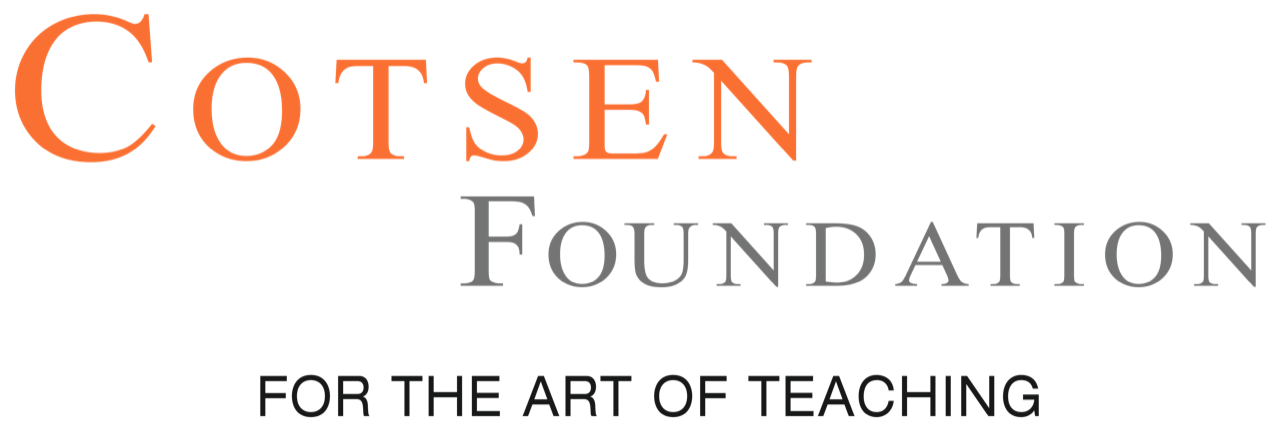Excellent Classroom Teaching
What does it look like?
Cotsen selects and invests in teachers who are already good at what they do and helps them become great. Cotsen Fellows spend two years honing their practice in a specific content area. In the last 5 years, x% have focused on writing, y% on reading, and z% on math. The work is highly individualized and teacher-driven: working with their mentor, every Fellow sets and monitors specific goals for themselves and their students. Underpinning everything Cotsen does, however, is a shared vision of high-engagement classrooms driven by student thinking.
How do we know?
We gather multiple kinds of evidence about how teacher’s classroom practice changes over the course of their Fellowship. Data from the teachers themselves, the Mentors who work with them, and the students in their classrooms all document significant shifts.
The teacher view: Teachers engage in structured reflection on their progress throughout the two-year Fellowship, through recording and critiquing videos of themselves teaching, assessing progress towards their specified Professional Growth Targets and in weekly coaching sessions. This allows them to develop a systematic view of the specific ways their practice is changing and to continue to set growth goals.
In a survey of 200 alumni Fellows, teachers rated the impact of the program on their ability to do twelve specific things in the classroom. The ratings overall were very high with 70% or more of alumni fellows reporting a Major or Transformational impact (top 2 points on a 5-point scale) on all 12 instructional skills. The number of teachers reporting no or minor impact in any of these skills was negligible.
The most highly impacted skills aligned well with Cotsen’s vision of instruction that is driven by student thinking:

Significantly, almost all Fellows report that these impacts go beyond the specific content area where they focus their learning and experimentation, fundamentally changing their instructional approach.

The Mentor view: Mentors have a close-up, week-to-week view of how Fellows’ teaching practice is evolving as they engage in weekly coaching cycles of planning, observing, debriefing, and setting new goals. They also track the longer trajectory of change as they engage in structured reflection with their Fellows around classroom videos and Professional Growth.
In a survey of 50 alumni Mentors, Mentors identified the three areas of greatest instructional change in their Fellows, from the same list of 12 specific instructional skills presented to Fellows. Mentor assessments strongly reinforced the self-assessments of the teachers in terms of where they grew the most:
Areas of greatest instructional improvement
• Ask questions that elicit student thinking
• Plan instruction around clear learning goals
• Act as a facilitator of learning
• Know students as individual learners
The student view:National studies have shown that students are excellent observers of teaching, and that what they report correlates strongly with other measures of effective teaching, including trained observers and value-added test score analysis (Gates Measures of Effective Teaching). We used one such validated student survey instrument (Tripod) to look at what students said about how their teachers taught in the fall and again in the spring, in classrooms led by Cotsen Fellows as compared to non-participating teachers in the same district.
The survey measures 7 domains of effective teaching (The 7 C’s Framework) which are well aligned with Cotsen’s vision of excellent teaching. The survey focuses on observable teaching behaviors, phrased in student friendly language. For example, one of the items for “Clarify” asks “If you don’t understand something my teacher explains it another way.”
In all seven areas, the fall to spring change in effective practice, as reported by students, showed statistically significantly larger change in Cotsen classrooms than in comparison classrooms. The chart below shows how much more Cotsen teachers improved, on a 200-point scale.



